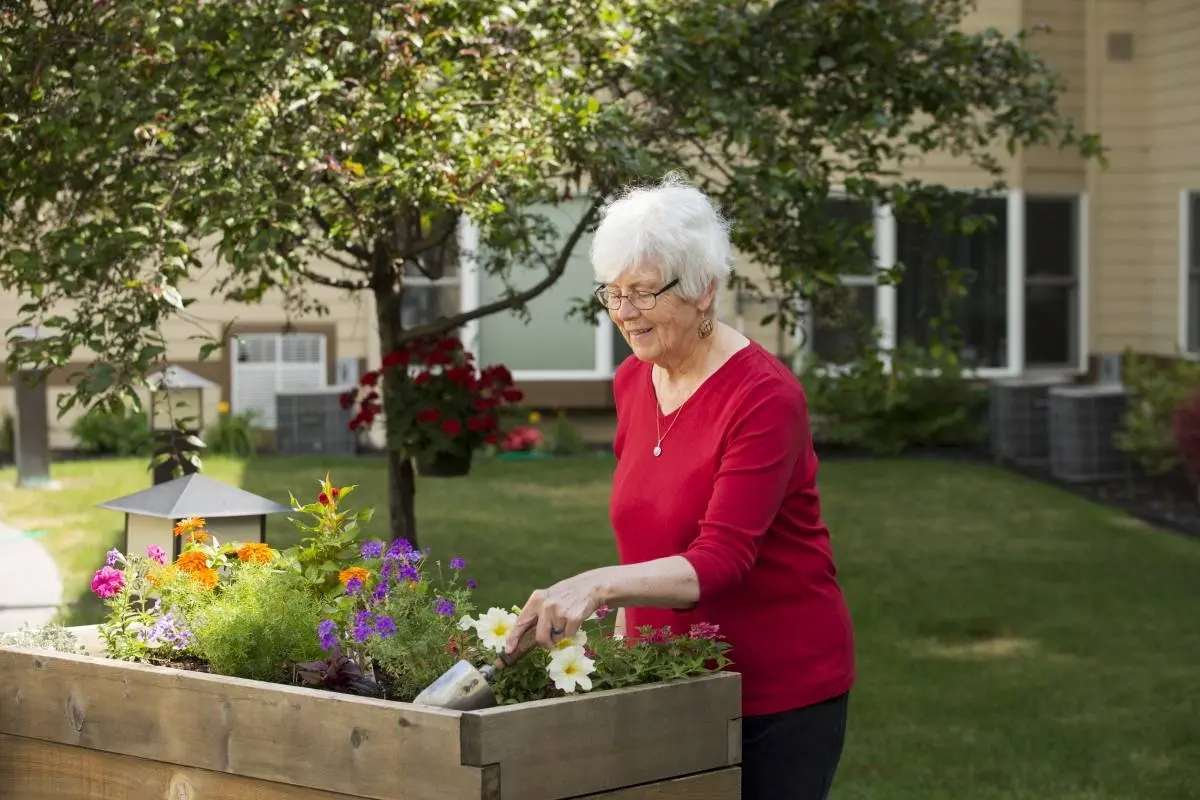The Impact of Personalized Memory Care on Mental Wellness
All Concerning Memory Care Providers: Why Tiny Memory Treatment Homes Are a Great Option
Memory care services play a necessary function in supporting people with Alzheimer's and dementia. Tiny memory care homes stand apart for their tailored technique and intimate setup. With lower staff-to-resident proportions, these homes foster more powerful links and tailored treatment. Residents take advantage of enhanced social interactions and a risk-free environment. As family members check out options, comprehending the one-of-a-kind advantages of little memory care homes becomes crucial. What variables should be considered when choosing the right home?
Comprehending Memory Treatment Solutions
While several may know with basic senior treatment choices, recognizing memory care solutions is important for family members facing the difficulties of cognitive decrease. Memory treatment particularly satisfies individuals with conditions such as Alzheimer's disease and other types of mental deterioration. These solutions provide an organized atmosphere that concentrates on boosting the quality of life for residents with specialized care and support.Memory care centers are designed to assure safety and protection, usually featuring safeguarded settings to avoid roaming. Educated employee are available around the clock to assist with daily tasks, drug monitoring, and personal treatment. Additionally, memory care programs usually consist of cognitive stimulation activities, customized to involve residents and advertise mental health. Family members can benefit from recognizing these services, as they allow educated choices concerning their liked ones' treatment, making sure that their specific needs and preferences are resolved in a caring and helpful way.
The Advantages of Little Memory Care Homes
Small memory care homes supply distinct advantages that can considerably enhance the high quality of life for citizens with cognitive disabilities. One considerable benefit is the intimate atmosphere, which permits personalized interactions among team and residents. This smaller sized setting cultivates purposeful connections, reducing feelings of seclusion and anxiousness often experienced by individuals with memory issues.Additionally, the reduced staff-to-resident ratio in little memory treatment homes allows caretakers to offer even more mindful supervision and support. This technique not only enhances safety however also promotes a complacency for the residents.Moreover, little memory treatment homes can adapt promptly to the one-of-a-kind requirements and preferences of each resident, enabling an extra homey atmosphere. Such an environment can urge social engagement and involvement in activities, eventually enriching the everyday experiences of those coping with cognitive impairments.
Personalized Treatment Plans for Residents
Personalized care plans are crucial in memory treatment homes, as they provide to the special requirements and preferences of each citizen. These plans start with detailed assessments conducted by competent experts, that assess cognitive capabilities, case history, and individual interests. This tailored method assurances that care is not just reliable yet also respectful of each individual's self-respect and autonomy.Moreover, personalized treatment strategies are flexible, allowing modifications as locals' needs develop with time. This versatility fosters a complacency and familiarity, which is crucial for individuals dealing with memory obstacles. Caretakers are educated to carry out these plans regularly, giving support that lines up with the homeowners' routines and preferences.Ultimately, personalized treatment strategies boost the high quality of life for locals by promoting engagement, well-being, and self-reliance, making them a basic aspect of memory care solutions in small memory treatment homes.
Creating a Home-Like Atmosphere
Developing a home-like environment is vital for promoting convenience and familiarity in memory treatment settings, as it substantially impacts residents' psychological health. Small memory care homes frequently focus on tailored touches, such as warm shade combinations, family pictures, and familiar furnishings arrangements, which help residents really feel a lot more at simplicity. Integrating components similar to a typical home, like cozy home and public locations, urges a sense of belonging.Moreover, using all-natural light and outside spaces can boost the atmosphere, promoting relaxation and serenity. Team members play a significant duty in preserving this atmosphere by engaging with locals in a thoughtful way, treating them like household. Regular tasks, such as cooking or gardening, can additionally add to a home-like feel, offering chances for homeowners to join meaningful experiences. Overall, developing a nurturing atmosphere sustains cognitive feature and psychological stability, making it a vital aspect of memory care services.
Improved Social Communication and Neighborhood
Enhanced social communication and area are essential elements of memory treatment services. By fostering personalized social involvement and creating a family-like environment, these solutions promote meaningful connections amongst citizens. Team go to my blog tasks and events additionally urge involvement, aiding individuals feel a lot more included and sustained.
Customized Social Engagement
While social interaction is necessary for total well-being, lots of individuals with memory problems typically struggle to engage meaningfully with others. Personalized social involvement in memory treatment homes addresses this difficulty by developing customized activities that accommodate locals' unique interests and abilities. By concentrating on private choices, caretakers can foster links that resonate deeply with each individual. Tasks such as art treatment, songs sessions, and assisted conversations advertise cognitive excitement and emotional expression. Additionally, small team setups urge camaraderie and enable even more intimate communications, improving feelings of belonging. This method not only deals with feelings of seclusion yet additionally equips homeowners to preserve a feeling of identity, ultimately adding to enhanced mental health and wellness and quality of life.
Family-like Environment
In a memory care setup, fostering a family-like atmosphere greatly improves social communication and develops a feeling of area amongst residents. Smaller sized memory treatment homes frequently prioritize intimate settings, allowing homeowners to develop closer links with one another and team member. This nurturing atmosphere advertises trust, which is necessary for individuals with memory disabilities. Residents are a lot more likely to talk and share experiences, developing a supportive network that eases sensations of loneliness. The familiarity of shared areas and regimens adds to a sense of belonging, further encouraging social interaction (personalized memory care). In such settings, psychological bonds flourish, bring about improved general wellness and a better of life for residents as they navigate their daily experiences together
Group Activities and Occasions

Safety And Security and Security Attributes in Little Houses
Numerous small homes designed for memory treatment incorporate important safety and safety and security features to assure the well-being of homeowners. These homes usually make use of safe and secure access and exit indicate protect against straying, an usual issue amongst individuals with memory impairments. Additionally, security systems and alarm mechanisms boost tracking, making sure that staff can without delay reply to any unusual activities.Interior designs are tailored for security, with reduced risks such as sharp corners and clutter-free pathways. Handrails and non-slip flooring are typically set up to decrease the risk of drops. Personnel are learnt emergency methods, ensuring they are prepared for various situations.Moreover, personalized treatment plans might include evaluation of specific safety demands, providing customized services for each and every resident. Generally, these safety and security and security attributes produce a nurturing atmosphere where homeowners can grow while keeping their dignity and self-reliance.
Just how to Select the Right Memory Care Home
Exactly how can family members guarantee they pick the most appropriate memory treatment home for their enjoyed ones? The decision requires mindful consideration of several factors. First, households ought to evaluate the center's team qualifications and training, ensuring that caregivers are experienced in handling memory-related problems. Next, it's important to evaluate the home's atmosphere, concentrating on safety functions and whether it fosters a feeling of area and belonging. Going to the center can give insight right into everyday tasks and the social atmosphere, which are necessary for psychological excitement and psychological health. Furthermore, families must ask regarding the treatment strategies offered, ensuring they are tailored to individual demands. Ultimately, taking into consideration the home's place and accessibility for family members sees can add to a smoother shift. By resolving these elements, households can make an informed decision that prioritizes their liked one's comfort and quality of life in a memory treatment setting.
Often Asked Questions
What Certifications Should Team Members in Memory Treatment Residences Have?
Personnel in memory treatment homes must have appropriate accreditations, experience in dementia treatment, solid communication skills, and empathy. Recurring training in behavioral administration and therapeutic interventions enhances their capability to sustain citizens successfully.
Just How Do Memory Treatment Provider Differ From Conventional Assisted Living?
Memory care solutions concentrate particularly on individuals with memory impairments, offering specialized support and structured atmospheres. On the other hand, standard assisted living uses basic support with daily activities, doing not have the tailored strategy needed for those with cognitive obstacles.
What Sorts of Tasks Are Offered in Memory Treatment Residences?
Memory treatment homes commonly offer a range of activities developed to involve homeowners. Typical choices include art treatment, songs sessions, cognitive games, exercises, horticulture, and gatherings, all targeted at improving well-being and cognitive function.
Can Locals Bring Their Own Belongings to Memory Care Homes?
Locals can commonly bring their very own possessions to memory care homes, allowing them to customize their living room - personalized memory care. This technique helps create a familiar atmosphere, promoting convenience and a sense of identification for the individuals

Just How Are Family Members Associated With the Treatment Refine?
Relative play an essential duty in the treatment process, frequently participating in decision-making, participating in care conferences, and offering emotional assistance. Their participation cultivates a collaborative setting, boosting the citizen's overall well-being and lifestyle. While numerous may be familiar with general senior treatment alternatives, comprehending memory care services is necessary for family members encountering the obstacles of cognitive decline. These services offer a structured setting that concentrates on boosting the quality of life for locals through specialized care and support.Memory care facilities are made to guarantee safety and security and security, often including secured settings to protect against roaming. Personalized treatment plans are important in memory care homes, as they cater to the distinct demands and choices of each citizen. Team members in memory care homes must have appropriate accreditations, experience in mental deterioration care, strong interaction skills, and empathy. Memory treatment services concentrate specifically on people with memory disabilities, supplying specialized support and structured environments.